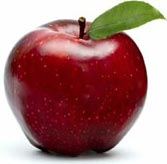14 Foods That Cleanse the Liver
1. Garlic

Just a small amount of this pungent white bulb has the ability to activate liver enzymes that help your body flush out toxins. Garlic also holds high amounts of allicin and selenium, two natural compounds that aid in liver cleansing.
2. Grapefruit
High in both vitamin C and antioxidants, citrus fruits like grapefruit, oranges, limes, and lemons support the natural cleansing abilities of the liver. Have a small glass of freshly-squeezed grapefruit juice to boost production of the liver detoxification enzymes that help flush out carcinogens and other toxins.
3. Beets and Carrots

Both are extremely high in plant-flavonoids and beta-carotene; eating beets and carrots can stimulate and support overall liver function.
4. Green Tea
This liver-loving beverage is full of plant-based antioxidants known as catechins—compounds known to assist liver function Green tea is a delicious, healthy addition to any diet. Just remember that green tea offers the benefits, not green tea extract. Some research suggests green tea extract may actually have a negative effect on liver health. Keep it simple and stick to the beverage to enjoy the benefits of green tea.
5. Leafy Green Vegetables

One of our most powerful allies in cleansing the liver, leafy greens can be eaten raw, cooked, or juiced. Extremely high in chlorophyll, greens soak up environmental toxins from the blood stream. With their distinct ability to neutralize heavy metals, chemicals, and pesticides, these cleansing foods offer a powerful protective mechanism for the liver.
Incorporate leafy greens such as bitter gourd, arugula, dandelion greens, spinach, mustard greens, and chicory into your diet. This will increase creation and flow of bile—the substance that removes waste from the organs and blood.
6. Avocados
This nutrient-dense superfood helps the body produce glutathione, a compound that is necessary for the liver to cleanse harmful toxins.
7. Apples

High in pectin, apples hold the chemical constituents necessary for the body to cleanse and release toxins from the digestive tract. This, in turn, makes it easier for the liver to handle the toxic load during the cleansing process.
8. Olive Oil
Cold-pressed organic oils such as olive, hemp, and flaxseed are great for the liver when used in moderation. They help the body by providing a lipid base that can absorb harmful toxins in the body. In this way, they take some of the burden off the liver.
9. Alternative Grains
If your diet includes wheat, flour, or other standard grains, it’s time to make changes. And alternative grains like quinoa, millet, and buckwheat can help. Your liver is your body’s filter for toxins, and if you have certain sensitivities, grains that contain gluten only add to them. One study found that persons who experienced sensitivity to gluten also experienced abnormal liver enzyme test results.
10. Cruciferous Vegetables
Broccoli and cauliflower are good sources of glucosinolate, which supports enzyme production in the liver. These natural enzymes flush carcinogens and other toxins from the body, and may significantly lower risks associated with cancer.
11. Lemons and Limes

These citrus fruits are high in vitamin C, which aids the body in synthesizing toxic materials into substances that can be absorbed by water. Drinking freshly-squeezed lemon or lime juice in the morning can stimulate the liver.
12. Walnuts
High in the amino acid arginine, walnuts support the liver in detoxifying ammonia. Walnuts are also high in glutathione and omega-3 fatty acids, which support normal liver cleansing. Make sure you chew the nuts until they are liquefied before swallowing.
13. Cabbage
Much like broccoli and cauliflower, eating cabbage stimulates liver detoxifying enzymes that help flush out toxins. Kimchi, coleslaw, cabbage soup, and sauerkraut are great cabbage-foods to add to your diet.
14. Turmeric
Turmeric is the liver’s favorite spice. Try adding some of this detoxifying goodness into your next lentil stew or veggie dish for an instant liver pick-me-up. Turmeric helps boost liver detoxification by assisting enzymes that actively flush out dietary toxins.
This golden spice tastes great in all kinds of dishes, but you can further boost your intake with a turmeric supplement. A word of warning; turmeric supplements are somewhat notorious for low-quality ingredients and even outright dangerous contamination. Only buy the highest quality turmeric from the most reputable sources. I encourage you to try Global Healing Center’s own Turmeric supplement. This premium liquid supplement contains potent antioxidants and is sourced only from organic Curcuma longa root.




